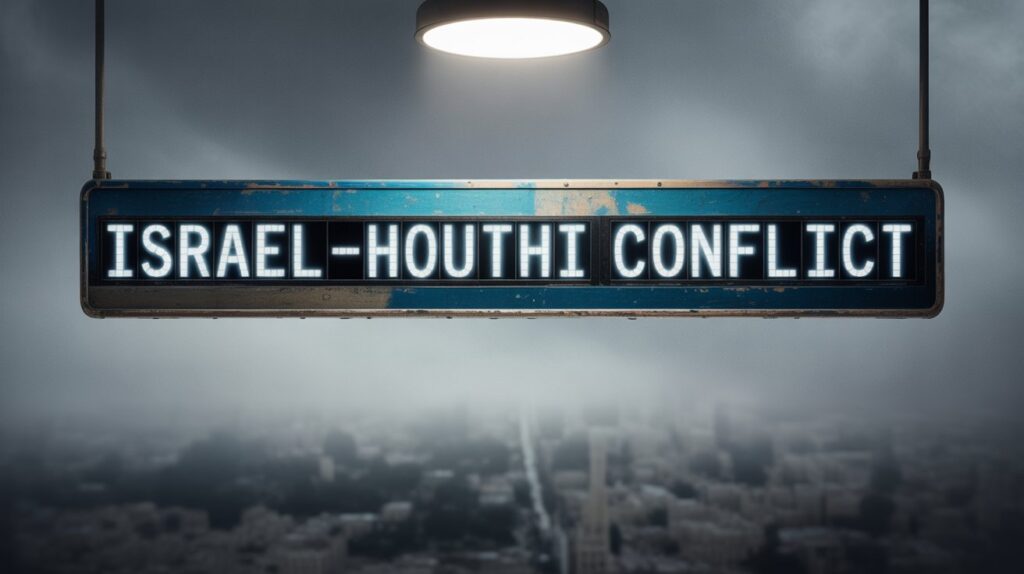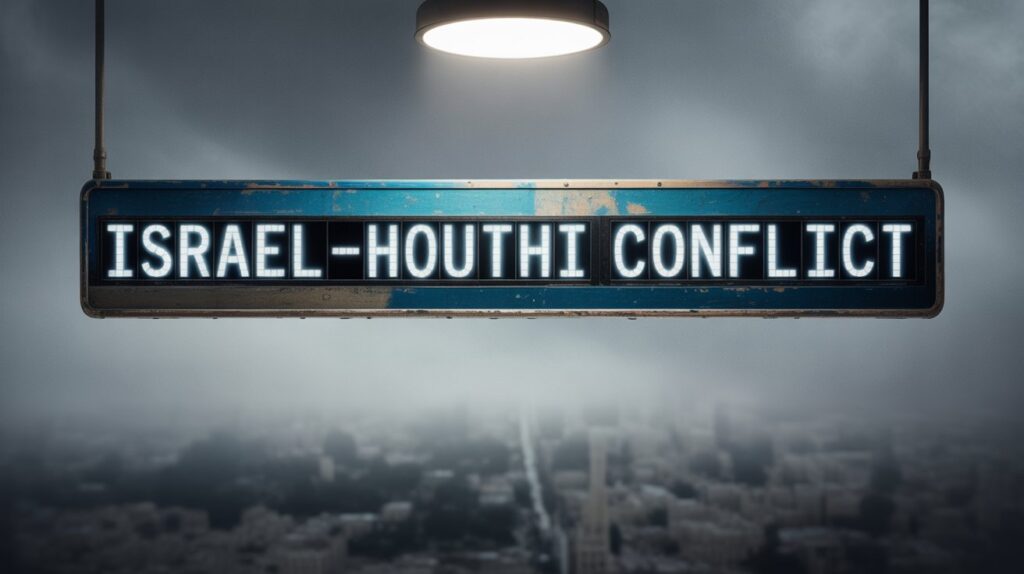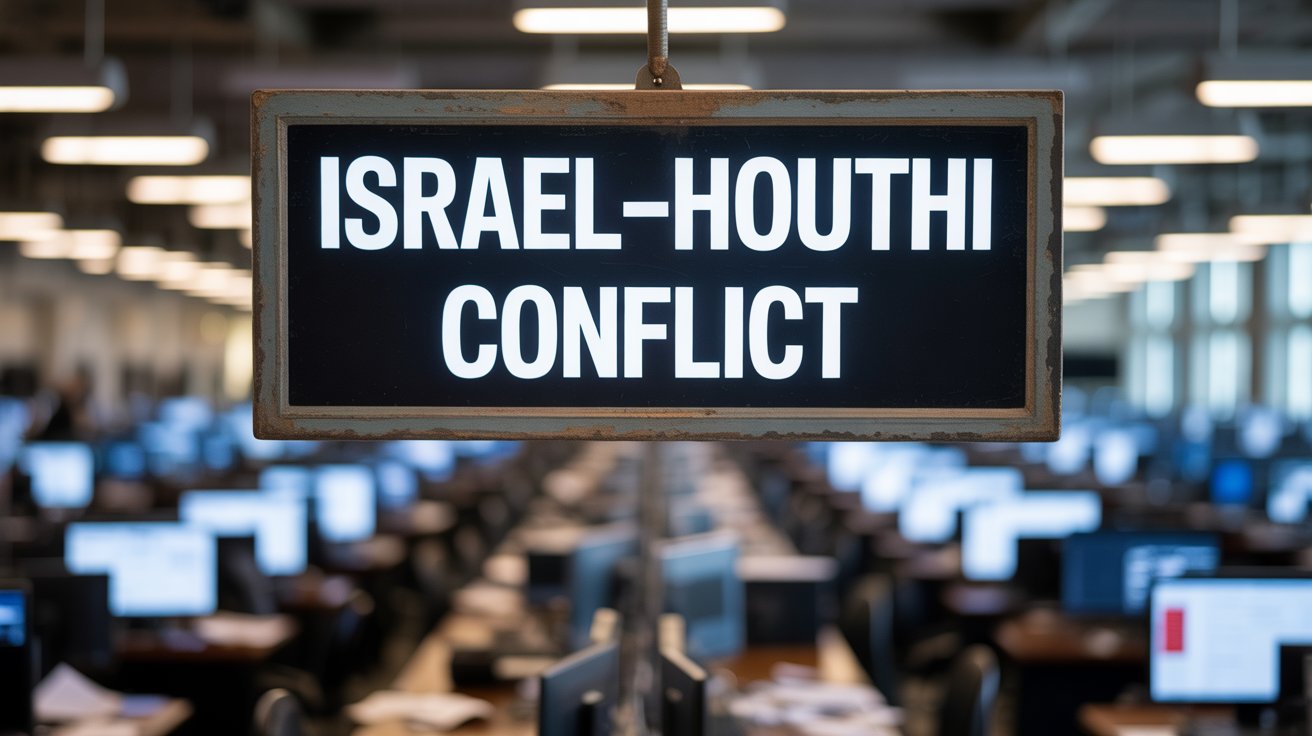What Happened in 2025 That Made Things Worse
The fight between Israel and the Houthis has become one of the most unstable events in the Middle East in 2025, bringing attention from around the world and having a big effect on security in the region. The fight between Israel and Yemen’s Iran-backed Houthi rebels is more than simply a local problem; it shows how the balance of power in the Middle East is changing and how proxy warfare is becoming more important.

What are the Houthis?
The Houthis, or Ansar Allah, are a Shiite rebel group that started in northern Yemen. The Yemeni civil war that started in 2014 brought them to the world’s attention when they overthrew the government in Sana’a that was recognised by other countries. The Houthis have been fighting the Saudi-led coalition, which comprises Gulf governments and Western allies, for a long time. Iran is their main supporter. They have been able to extend their reach across the region because they have access to advanced drone and missile technologies.
Why are the Houthis attacking Israel?
The Houthis have become more hostile towards Israel in the last few months. They have sent drones and missiles to support the Palestinians in the continuing struggle in Gaza. The Houthis see Israel as an invader and act in line with the larger Axis of Resistance, which is a group of Iranian-backed groups that includes Hezbollah and several Iraqi militias.
The Houthis started firing long-range drones and ballistic missiles from Yemen into Israeli territory in late 2024 and early 2025. Most of the missiles were stopped by Israel’s Iron Dome and David’s Sling defence systems, but the attacks had a clear symbolic meaning: the Houthis are now taking an active role in the larger Arab-Israeli confrontation.
What Israel Did
Israel has used intelligence from regional partners including Saudi Arabia and the UAE to carry out targeted airstrikes on Houthi locations in Yemen in response to Houthi attacks. These operations have mostly been about cutting off the Houthi’s supply routes for missiles, destroying launch pads, and taking out important command centres.
In the past, Israel’s military campaigns focused on threats from Gaza, Lebanon, and Syria. Now, however, they are targeting Yemen, which is a new chapter in Israeli defence policy. Israeli officials have said that they “will not accept threats from any front, even the southern Arabian Peninsula.”

Effects on the region
The fight between Israel and the Houthis has a lot of important effects on the Middle East:
Expanded Theatre of war: The war map in the region has grown because Israel and Yemen are now directly fighting each other. This could bring in additional countries and non-state players.
Strained Diplomacy: Attacks that keep happening have made it harder to work on a bigger peace plan for the Middle East. Negotiations for the Abraham Accords have slowed down, and more and more Arabs are supporting anti-Israel sentiments because of the humanitarian crisis in Gaza.
Shipping Risks in the Red Sea: The Houthis have endangered shipping in the Bab el-Mandeb Strait, which is an important worldwide shipping route. The U.S. Navy and European forces are patrolling to protect commercial ships that are thought to be linked to Israel from attacks.
The Iran Part
To comprehend the Israel-Houthi conflict, you need to know what Iran’s strategic goals are. Iran keeps giving the Houthis weapons, training, and money, utilising them as a proxy army to go against the interests of Israel and the West. Tehran says it wasn’t directly involved, but the Houthis’ advanced weapons and coordinated message show that it was.
Some analysts say that Iran wants to keep Israel’s attention away from its northern borders and make its defences weaker. The risk is mounting that this might start a bigger battle in the area, with Hezbollah in Lebanon and other Iran-aligned forces in Iraq and Syria joining in.
Responses from around the world
The world has spoken out about the increasing tensions. The UN has asked for a de-escalation, stressing the need to protect civilians and keep Yemen from becoming another regional conflict. The US has backed Israel’s right to defend itself, but it has also told Israel to be careful because it is worried that the conflict could spread and harm Gulf security and the world’s oil supply.
Can we have peace in the future?
As of the middle of 2025, there is no evidence that the Israel-Houthi battle will end soon. Both parties are still stuck in their stances, and diplomatic efforts haven’t made any progress. Analysts, on the other hand, think that backchannel talks, which might involve Oman or Qatar, could help ease tensions.
The Israel–Houthi confrontation is a depressing reminder of how proxy wars and regional rivalries are still affecting the future of the Middle East. The world is watching attentively, hoping for a change from fighting to diplomacy, since lives are at risk and trade is in danger.



